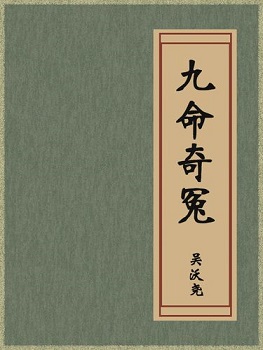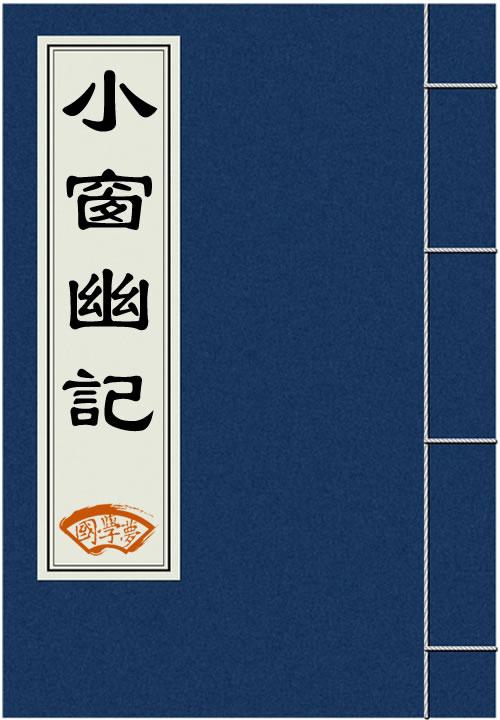TWO evenings later, Quentin was in the Café del Recreo. His streak1 of bad luck at the Casino continued. María Lucena was talking to Springer: Quentin was smoking, and thoughtfully contemplating2 the ceiling. Very much bored, he rose to his feet, with the intention of going to bed.
In the street he met the clerk, Diego Palomares, who was going in the same direction.
“What’s doing, Palomares?” he said.
“Nothing. I’m living a dull and stupid life.”
“I too.”
“You? What you have done is to understand life as few people can. While I....”
“Why, what’s the matter with you?”
“You are a revolutionist, aren’t you?” said Palomares. “Well, if you ever take up arms against the rich, call on me. I’ll go with all my heart, even to the extent of making them cough up their livers. There are nothing but rich men and poor men in this world, say what you will of your Progressists and Moderates. Ah! The blackguards!”
“Have they done anything to you at the store?”
“Not just now; but they have been for many years. Twenty years working as if it were my own business, and helping3 them to get rich; they in opulence4, and me with thirty dollars a month. And that man, just be[315]cause he saw me take home a chicken to my sick girl, said to me: ‘I see that you are living like a prince.’ Curse him! Would to God he had sunk in the ocean!”
Palomares had been drinking, and with the excitement of the alcohol, he exposed the very depths of his soul.
“You are terrible,” said Quentin.
“You think I’m a coward! No; I have a wife and three small children ... and I’m already decrepit5.... Believe me, we should unite against them, and wish them death. Yes sir! Here’s what I say: the coachman should overturn his master’s carriage, the labourer should burn the crops, the shepherd should drive his flock over a precipice6, the clerk should rob his employer—even the wet nurses should poison their milk.”
“You’re all twisted, Palomares.”
“Why do you say that?”
“Because I thought you were a sheep, and you are almost, almost a wolf.”
“Why, there are some days when I would like to set fire to the whole town. Then I’d stay outside with a gun and shoot anybody who tried to escape.”
“The tortoise will get there,” remarked Quentin.
He said good-bye to Palomares, and went home. As he opened the door and stepped into the entryway, he heard some one weeping sadly. Attracted by the wails7, he went through the corridor, crossed a patio8, and asked in a loud voice:
“What’s the matter?”
A door opened, and a weeping woman with disheveled hair came out with a lamp in her hand. In a voice choked with sobs9, she told Quentin that her two-year-old son had died, that her husband was not in town, and that she had no money with which to buy a casket.[316]
“Would you like to see the boy, Señorito?”
Quentin entered a small whitewashed10 room; the boy’s body lay on a mattress11 across the table.
“How much do you need to bury him?” asked Quentin.
“A couple of dollars.”
“I’ll see if I have them. If not, we’ll pawn12 something from my house.”
Quentin went back through the patio followed by the woman; and the two climbed up to the main floor. Quentin lit the lamp, and went through all the drawers. He found four dollars in María Lucena’s bureau, and gave them to the woman. This done, he closed the door and got into bed.... The voices of María Lucena and her mother awakened13 him.
“There were four dollars here,” cried the actress. “Who took them?”
“I took them,” said Quentin calmly.
“Eh?”
“Yes. One of our neighbours was crying because her baby boy had died and she could not buy him a casket; so I gave them to her. I’ll return them to you tomorrow.”
“That’s it. That’s fine,” said the actress. “Give that woman the money I earn.”
“Am I not telling you that I will return them to you?”
“Little that woman cares for her baby,” screamed María.
“She’s probably buying drinks with the money by this time,” added her mother.
“Señoras,” said Quentin, sitting up in bed, “I find you absolutely repulsive14.[317]”
“You are the one who is repulsive,” screeched15 the old woman.
“Very well; the thing to do now is to get out of this den16 of harpies; they are beginning to smell.”
“Well, son; get out, and never come back,” cried María.
Quentin dressed rapidly, and put on his boots and his hat.
“Well; give me the key.”
“I give the key to no one,” rejoined the actress.
“See here, don’t you exhaust my patience, or I’ll give you a thumping17.”
When the old woman heard this, thrusting her face close to Quentin’s, she began to insult him, shaking her hands in his face.
“Rowdy!” she said, “you’re an indecent rowdy. A fandango-dancing rowdy!”
“Hush, ancient Canidia,” said Quentin, pushing the old woman away from him, “and get you gone to your laboratory.”
“Don’t you call my mother names; do you hear?”
“Nobody can call me names.”
“Well: will you give me the key or won’t you?” asked Quentin.
“No.”
Quentin went to the balcony window and opened it wide. He jumped to the other side of the railing, hung by his wrists, felt for the grated window of the floor below, and dropped to the sidewalk.
“Until—never!” he called from the street.
He had blood on his cheek from one of the old woman’s scratches. He washed at a fountain, dried himself on his handkerchief, and went to the Casino. He went[318] through a door on the right, and entered a large salon18 which was lined with enormous mirrors.
A sleepy waiter approached him.
“Do you wish something, Don Quentin?” he asked.
“Yes; put out that light as if there were no one here.”
“Are you going to stay here?”
“Yes.”
“But that is not allowed.”
“Bah! What’s the difference?”
The lights were put out, and, after a little, Quentin fell asleep on the divan19.
Two waiters in coarse, white aprons20 awoke Quentin. One was placing the chairs upon the tables, and the other was cleaning the divans21 with a mop and brush.
“Have you been asleep, Señorito?” said one of them with a laugh.
“Yes; what time is it?”
“Very early. Do you know that there is a great hub-bub in the streets?”
“What is happening?”
“Pacheco has entered Cordova with a gang of toughs, and they are all running through these God-forsaken streets yelling and rioting.”
Quentin jumped up. There was a bucket of water on the floor.
“Is it clean?” he asked the waiters.
“Yes.”
Quentin kneeled on the floor and ducked himself twice. The waiters laughed, thinking that it was all from the effects of a convivial22 evening.
“Now my head is clear,” said Quentin.
“I’ll bring you a towel,” announced one of the boys. Quentin dried himself, and went into the street.[319]
He walked rapidly toward Las Tendillas, where he found great excitement, and heard all sorts of comments and gossip. He asked a man where Pacheco was.
“He’s near the Plaza23 de la Trinidad now.”
Quentin ran on, opening a path through the crowd with his elbows.
“The man is an idiot,” he thought. “Could he have imagined that he was really going to head the Revolution?”
After a hard struggle, Quentin could see two horsemen riding at the head of the rabble24. One of them was Pacheco; the other was his brother.
“Long live Liberty! Long live the Revolution!” shouted the bandit, waving his arm.
The crowd echoed his cry with enthusiasm, and added:
“Long live the second Prim25! Long live General Pacheco!”
“Why, the man is crazy,” murmured Quentin. “I wonder if he’s got the money yet?” Then he thought—“Suppose he has it with him? He’s fixed26 me if he has.”
Quentin continued to advance, digging right and left with his elbows, in order to get near enough to speak with Pacheco. Suddenly he heard the sound of a shot, and immediately after, almost instantaneously, another; a bit of smoke came from one of the screened windows of the Trinidad barracks.
The crowd drew back, terrified; people began to run pell-mell, and in the alleyways the noise made by the heels of those who fled sounded like a squadron of horses at a gallop27. Quentin was forced to take refuge in a doorway28 in order to keep from being trampled29. Several[320] other persons also pushed their way into the same place.
“What happened?” they asked one another.
“They are beginning to shoot, and there’s a great rumpus yonder.”
Another who had just arrived, said:
“They’ve killed Pacheco.”
“Did you see it?” asked Quentin.
“Sí, Señor. I was going by without knowing what was up, when I saw Pacheco fall. His brother jumped from his horse, leaned over the corpse30, and said, weeping: ‘He is dead.’”
Quentin went into the street.
“If that fellow had the money in his pocket, there is no way of getting it. I’ll have to explain where it came from.... But if it is still at his house?—Cristo! I mustn’t waste any time.”
He reached the Gran Capitán in a hurry, and took a carriage. “To the Mosque,” he said, “and hurry.” The coachman left him at one of the doors of the cathedral.
“Wait for me,” Quentin instructed him, “I shall be some time.” He jumped from the carriage, went through the church, rushed like a cannon31 ball through the Patio de los Naranjos, went down by the Triunfo Column, crossed the bridge, and entered Pacheco’s house. He took out the key which Diagasio, the Mason, had made for him, and opened the door.
The bed was untouched; he looked through the little night stand, and found nothing; then he went to the table, took out his penknife and removed the lock from the drawer. Upon some books lay a Russian leather pocketbook, tied with a ribbon. He opened it; there were the bills. He did not count them.[321]
“I am the favourite of Chance,” said he, smiling.
He closed the door, crossed the bridge, and threw the key into the river. The news evidently had not reached that part of the city, for the people were quiet, and there were no gossiping groups. Quentin went up by the Triunfo, again traversed the Patio de los Naranjos, then the church, and got into the carriage.
“To the Gran Capitán,” he said.
By this time the news was spread all over the city; the old wives were shouting it to each other from door to door, and from window to window.
“Where can I leave this money with safety?” Quentin asked himself.
Whomever he trusted would be apt to ask indiscreet questions. His stepfather? Impossible. Palomares, perhaps? But Palomares, in his indignation against the rich, would be likely to keep the money. Señora Patrocinio? She would probably be angry at him. Springer? He was the best.
“I’ll go to his house,” he thought; and he gave the coachman the address of the Swiss watch-maker.




